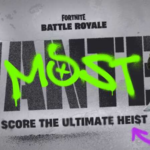Published on: 11/04/2022
Sega announces “Future of Gaming” comprises NFTs and cloud streaming

Sega has revealed a secret “Super Game” initiative, and instead of a single game, it appears to be concentrating on several different games, some of which will comprise Cloud and NFT technology. It was back in May of last year when the company first revealed its Super Game initiative to investors, describing it as a “priority strategy” for the next five years.
‘Gaming has a history of expansion through the connections of various cultures and technologies. For example, recently, watching SNS (social network services) and game videos is typical. In the future, it is natural for the future of games to expand by involving new fields such as cloud gaming and NFT. We are also developing Super Game,’ said Sega producer Masayoshi Kikuchi.
During the interview, countless Sega producers and executives shared further details about their Super Game initiative, which the company had initially unveiled in a vague statement late last year.
But, what is Super Game actually?
Generally, Super Game is defined as several titles with prevalent multi-platform releases that generate $1 billion, like Phantasy Star Online revenues through cloud and online networks that feature live game business models.
In an interview with Sega Japan’s recruitment website, and delivered through VGC, several Sega executives stated that the new projects will have to be “multi-platform, global multi-language development, simultaneous worldwide release, and AAA titles” to compete in the Super Game.
According to Sega executive VP Shuji Utsumi, Super Game refers to more than one game and all of its development segments will come under the banner of super game, including mobile games, entertainment, and console/PC game development.
‘Several titles are being developed within the framework of Super Game, and while each title will vary, there is no doubt that they will be interactive titles that go beyond the traditional framework of games,’ he said. ‘For example, in the past, people who played games were called gamers, but now watching games has become a culture in itself, and such people could no longer be called gamers.’
Utsumi thinks that “there is great potential in the relationship between people who play and watch games”. He then added, ‘we are thinking of creating new entertainment within these possibilities.’
The NFTs controversion
Many argue that the NFT or blockchain technology is a giant scam, replete with scammers seeking to make money before the bubble bursts swiftly. Furthermore, blockchain technology can contribute to an increased amount of e-waste as well as accelerate global warming, waste electricity, and make it difficult for people to purchase specific parts for computers, like graphic cards.
Several companies have tried and failed to integrate NFTs into their existing games. Ubisoft, for example, has attempted and then quickly failed to integrate NFTs into its games. Even supposedly success stories often end in embarrassing blunders and huge losses.
A more recent example: A hacker exploited security loophole in Axie Infinity and drained over 600 million dollars. Nevertheless, big game companies that are interested in making money will continue to ignore all of the criticism and backlash in order to make a few quick bucks, even blaming their fans for not getting NFTs.
-
Gaming // 2022-04-08
Epic, LEGO collaborate to build metaverse for children



